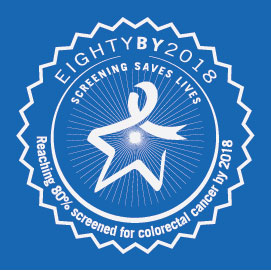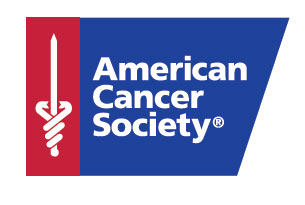As part of Colorectal Cancer Awareness Month, the American Cancer Society Hawaii Pacific shares their new screening initiative.
Colorectal cancer is a major public health problem, being the third leading cause of cancer deaths in both men and women in the U.S. with more than 140,000 adults diagnosed each year. The good news is that when adults get screened for colorectal cancer, it can be detected early at a stage when treatment is most likely to be successful. In some cases, it can be prevented through the detection and removal of precancerous polyps. Approximately one in three adults between 50 and 75 years old – about 23 million people – are not getting tested as recommended.
That’s why “80% by 2018” was created, a National Colorectal Cancer Roundtable initiative in which dozens of organizations have committed to eliminating colorectal cancer as a major public health problem. Together with the American Cancer Society and the Centers for Disease Control and Prevention, the goal is to have 80 percent of adults aged 50 and older being regularly screened for colorectal cancer by 2018. 
We believe thousands of lives can be saved by increasing screening rates to 80 percent. More than 100 organizations, including medical professional societies, non-profits, health plans, and cancer coalitions have embraced the goal. We know what we need to do to get more people screened for colorectal cancer, prevent more cancers and save lives. To do this, we plan on working to empower communities, patients, health care providers, community health centers, and health systems to close the screening gap.
We know screening is working. Colon cancer incidence rates have dropped 30 percent in the U.S. in the last 10 years among adults 50 and older. In the simplest terms, this means people aren’t developing colon cancer at the same high rate as the past, because more people have been getting screened. The percentage of the population up-to-date with recommended colorectal cancer screening increased from 56 percent in 2002 to 65 percent in 2010.
 There are several recommended screening test options, including: colonoscopy, stool tests (guaiac fecal occult blood test [gFOBT] or fecal immunochemical test [FIT]), and sigmoidoscopy. The best test is the one that gets done. By working together, demanding more of ourselves, and collectively pushing harder toward this common goal, we will make greater progress, prevent more cancers, and save more lives than we would by acting alone.
There are several recommended screening test options, including: colonoscopy, stool tests (guaiac fecal occult blood test [gFOBT] or fecal immunochemical test [FIT]), and sigmoidoscopy. The best test is the one that gets done. By working together, demanding more of ourselves, and collectively pushing harder toward this common goal, we will make greater progress, prevent more cancers, and save more lives than we would by acting alone.
Visit the American Cancer Society Hawaii Pacific website for more information.




